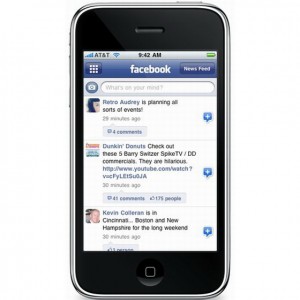If Facebook had its way, we would have no walls on our houses and we’d all be wearing ID chips to show our current location. If you think this idea is something from science fiction, think again. Right now, many of you are telling Facebook and Twitter and Foursquare and WeChat(Weixin) and other social networking sites exactly where you are. Here’s some what-ifs for you.
1. What if you had a stalker, someone from work or school or your neighborhood, who really wanted to get closer to you? How would he or she do that? Well, getting you to add him or her was a friend on Facebook would be a start. Do you know all of your friends? Do you know if they are really who they say they are? Chances are, if you connect to social networking through your mobile device or tablet, you’re opening yourself up to this kind of sketchy activity.
2. Do you drive a fancy car, say a Mercedes or BMW? To most people, driving a fancy car is a status symbol. That’s easy to figure out, isn’t it? Let’s say that some burglar is looking for a nice score in your neighborhood. Let’s say they figure out your name and address. With a bit of work, they could track you on some social networking site and know when you are not at home. That’s a lot easier than your might think. Even if you are just out shopping, maybe across town or in the next city, and you connect to one of your social networking sites through your phone, you are most likely telling that burglar exactly where you are and approximately how long it will be before you return home. You might as well leave a sign on your door, “Out for a bit, help yourself.”
3. You are applying for a job or an internship and someone wants to see what kind of person you are, aside from your resume or application. Maybe you’re in a bar, having a rousing good time and you tweet about it, maybe post some pics on Facebook, and maybe this bar you’re in just isn’t too classy. We’re thinking of somewhere that might have exotic dancers, mud- wrestling or midget tossing, you know? Sure, you are free to go to those places but do you really want future employers to know about it before they get to know the real you? Go ahead, tweet/post/comment from wherever you want but once you give any social media the ability to pinpoint your current location, you’re opening the door to this kind of snooping.

TIP: Get to know your mobile device or tablet. Figure out where you can turn your location settings off, or on, depending on your personal wishes. We’re not saying that telling others where you are is a bad thing, it’s just that sometimes it’s definitely not a good thing.
Here is a link that we found which describes real situations where location mapping caused problems. Check it out and, hopefully, this will reinforce out point:
http://blog.sherweb.com/geo-tagging-convenience-can-be-dangerous/
Thanks for reading!
